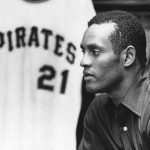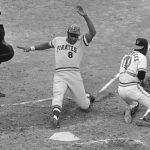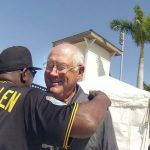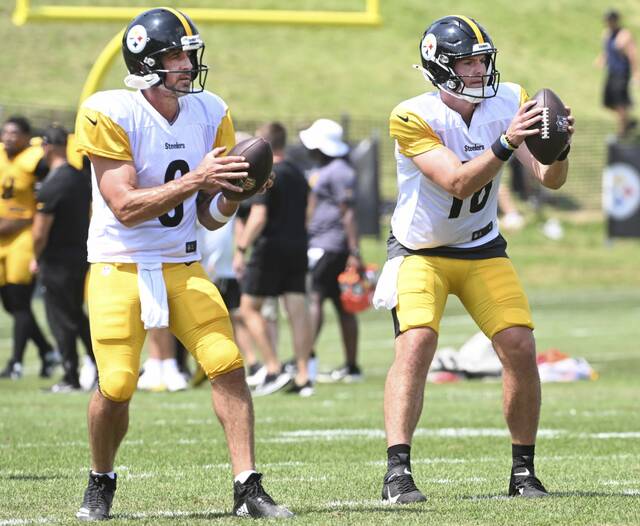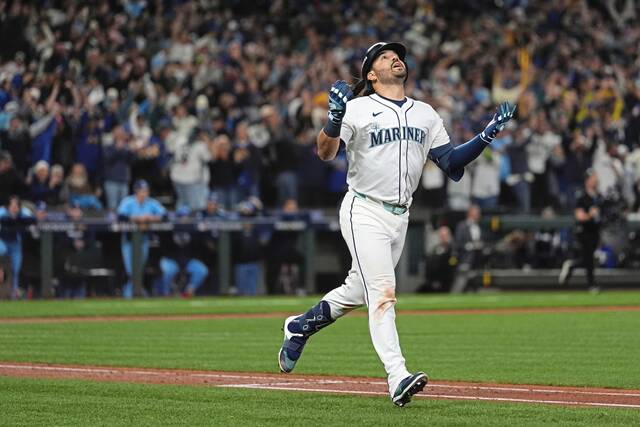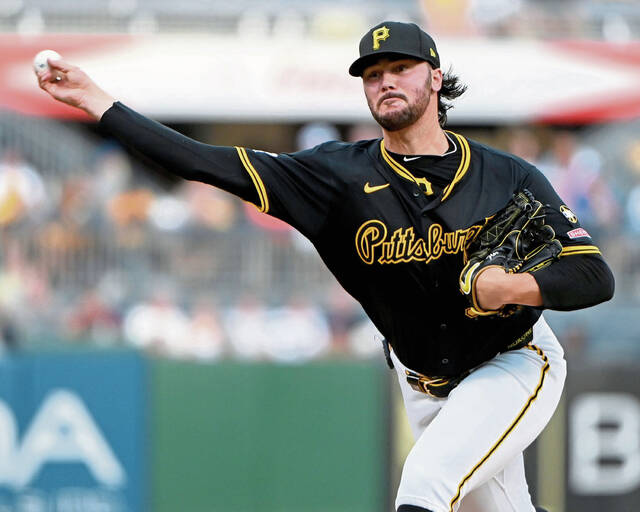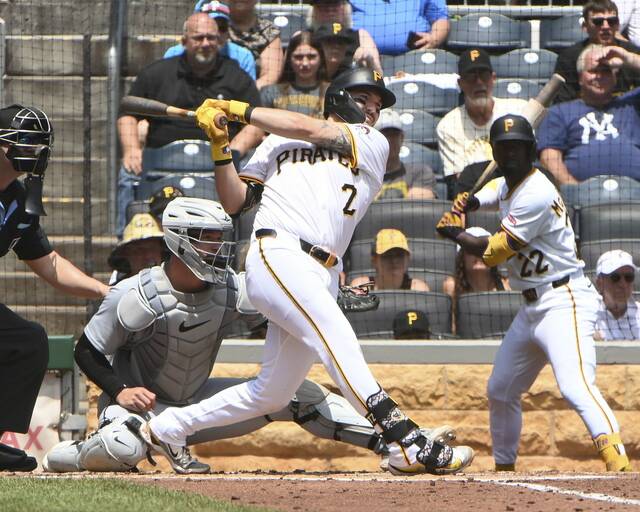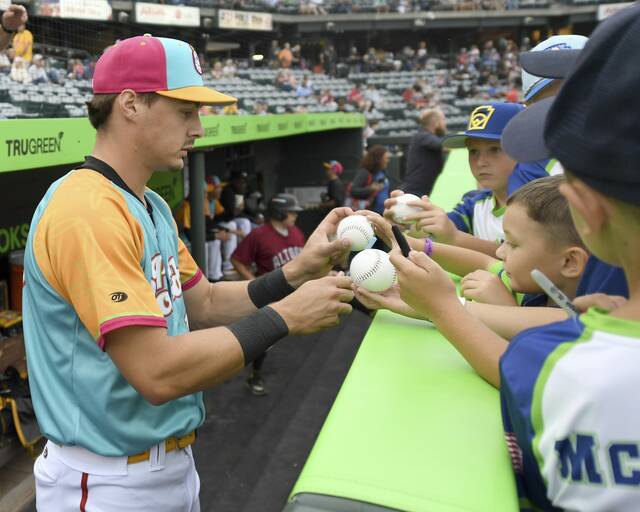When Pittsburgh Pirates manager Danny Murtaugh posted the lineup on Sept. 1, 1971, Gene Clines saw that he was starting in center field. Clines had no idea the Pirates were about to make MLB history, except for the chattering of a clubhouse attendant that stuck in his mind.
“He kept saying that the Homestead Grays are playing tonight, and I said, ‘What’s he talking about?’ ” Clines said, referring to one of Pittsburgh’s two Negro Leagues teams. “It didn’t dawn on me until the national anthem. I turned around and noticed we had nine minorities out there at the same time.”
The Pirates fielded the first all-minority starting lineup in baseball history — composed entirely of African-American and Latin American players — against the Philadelphia Phillies that night before 11,278 at Three Rivers Stadium. After trailing 6-5 in the top of the second inning, the Pirates took the lead on Manny Sanguillen’s two-run home run in the bottom of the second and went on to win 10-7.
Dave Cash insists he brought it to Al Oliver’s attention as the team was taking the field that they were about to make major league history.
“We were lined up in the dugout and I looked at Al,” Cash said, “and I said, ‘Al, it looks like we got nine brothers out here.’ ”
Beyond that, Cash said, he didn’t think anything of it.
“We were concentrating more on winning the ballgame,” Cash said, “than the color of the skin of the guys who were going to be playing.”
The game happened nearly a quarter-century after Jackie Robinson broke baseball’s color barrier. In hindsight, it seems amazing it took so long. Fifty years later, the trailblazing moment is still overshadowed by what the Pirates accomplished in mid-October, beating the heavily favored Baltimore Orioles to win the World Series.
“The all-minority team is not talked about, not like the 1971 championship team. There’s no comparison. None. I just hope that one day, it does,” said Oliver, a 24-year-old outfielder in ‘71. “It has to start at the top, for Major League Baseball to promote that because it was history. Of course, Jackie Robinson was definitely history. The all-minority team should be maybe second or third, but it has been overlooked and kind of overshadowed, no doubt about that.”
The Pirates regularly fielded lineups with seven and eight Black players, though the starting lineup typically consisted of Sanguillen at catcher, Bob Robertson at first base, Cash at second base, Richie Hebner at third base, Gene Alley at shortstop, with Willie Stargell in left field, Oliver in center and Roberto Clemente in right.
Some games, however, Hebner was the only white Pirate on the field. As if he wasn’t already aware, umpire Shag Crawford pointed it out one night while both were stationed at third base.
“In-between pitches Shag comes up to me and says, ‘Hey Hebner, you better do good tonight. You’re the only white hope out here,’ ” Hebner said. “There were a few nights I was the only white guy out there. But it never bothered me one bit. Who cares? You go in that clubhouse and it was like the U.N. building. But we had 25 guys who could play.”
The race the Pirates were more focused on was for the pennant. They had an 11-game lead in the NL East in late July before losing 12 of 17 games between Aug. 6-22. They rallied to win five of six before the Sept. 1 game against the Phillies, the third of the series in a definitive homestand in which the Pirates would win eight of nine games. From Aug. 23 until Sept. 16, they won 18 of 23 to take a 9 1/2-game lead.
“We didn’t care what color you were,” Cash said, “and I’m sure Danny (Murtaugh) was thinking the same way.”
The Pirates’ all-minority lineup included five Black American players — Cash, Clines, Oliver, Stargell and right-handed pitcher Dock Ellis — and also had an international flavor that Sanguillen credits Jackie Robinson with helping to cultivate by visiting their countries.
“Jackie Robinson played winter ball in Cuba, Panama and Puerto Rico, so he did good work for us, too,” Sanguillen said. “You see how life works? Clemente was Puerto Rican, Jackie Hernandez was Cuban and me and Rennie Stennett are Panamanian.
“Roberto Clemente said to me, ‘Manny, I knew that some day they’re going to do i,t but I’m happy that I’m here. It makes me feel good that I play for the Pirates.’ ”
The lineup was the result of some unusual personnel decisions made by Murtaugh, who had won the 1960 World Series and would lead the club to another world championship in ‘71.
Murtaugh started the 22-year-old Stennett at second base and in the leadoff spot. Cash started at third base, a position he played just 41 times in his 12-year career, as opposed to 1,330 appearances at second. Hernandez played shortstop, where Alley started 97 games.
That Oliver, who started 112 games in center, played first base allowed Clines to play center. The fact that Oliver, a left-handed hitter, was in the game at all defied conventional baseball wisdom. The Phillies started lefty pitcher Woodie Fryman, which typically would have meant the right-handed hitting Bob Robertson would have been in the lineup.
“I always faced the left-handers. I was looking for my name (in the posted lineup), and it wasn’t up there. I was a little upset,” said Robertson, who started 126 games at first base that season and was nonetheless happy for his teammates who were a part of the historic lineup. “Once I realized what this was all about, I thought it was great for baseball. I thought it was good for the Black players to have something like that and to go out on the field as a unit.
“They were losing and then they came back and won that game, and the pride that it instilled in each and every one of those players, I think that was a wonderful thing. It was a part of the history of baseball and I’m glad I was part of it. Now, did Danny actually know what he was doing? I don’t know.”
Bill Virdon, the Pirates’ hitting coach that year, said Murtaugh became aware of it only at the last minute: “He just picked the right people at the right time. Murtaugh was the best. He always made good decisions.” Afterward, Murtaugh told the Philadelphia Evening Bulletin: “When it comes to making out the lineup, I’m color blind, and my athletes know it.”
Steve Blass, the right-hander who would win Game 7 of the World Series, credits Murtaugh for the way he downplayed the historic moment as if it was “business as usual for all of us.”
“The writers all came in after the game and said, ‘Do you know what you just did?’ He said, ‘I just sent out the nine best Pirates tonight,’ ” said Blass, who retired as a Pirates broadcaster in 2019 after 34 seasons.
“Danny was a brighter guy than a lot of people gave him credit for. The fact that it got defused like that went right along with the fact that this was a good ballclub that was equal parts Black, white and Latino.”
“When I read that in the paper the next day, I thought, ‘That was so perfect of Murtaugh,’ because we as a team didn’t think that was a big deal. That it became a big deal became a source of pride. But, at the time, it was just the old Buccos put nine out there and won that night. It’s a great thing, for the team and the city. You step forward, and all of those kinds of steps are to be appreciated.”
Blass believes the moment was a point of pride for Hall of Famers Clemente and Stargell. Blass recalled the bus rides with Stargell in the minor leagues where there were stops to pick up players at separate hotels in different parts of town for Blacks and whites.
“Clemente was always a crusader for the less fortunate, blue-collar people. That always carried over to the guys who played in that game who didn’t play every day,” Blass said. “I’m sure he was pleased because he had an awareness for the world around him, even in the clubhouse. And so did Willie. They’d both been around long enough to see how the baseball world was changing — or needed to be changing.”
In ’71 the Pirates went on to win the National League East division title, a best-of-five game playoff with the San Francisco Giants to win the NL pennant, and the World Series against the Orioles in seven games.
Cash said he is still irked the Pirates never received an invitation to the White House from President Richard Nixon after they became world champions.
“Everybody else got a chance to go to the White House and meet the president,” Cash said, “and we never got a chance to do that.”
Fifty years later, Cash said that while it didn’t seem like a big deal at the time, being a part of the Pirates’ historic all-minority starting lineup is something that brings him a great deal of pride.
“Words can’t describe what it means to us now,” Cash said. “As time passes, then you realize what happened.”













